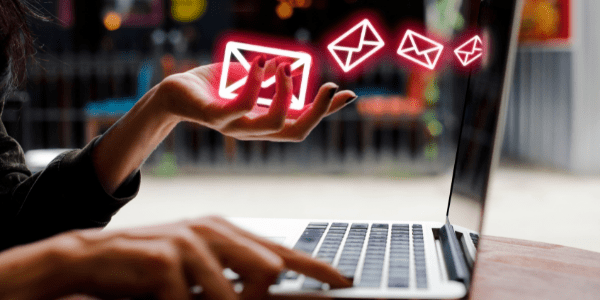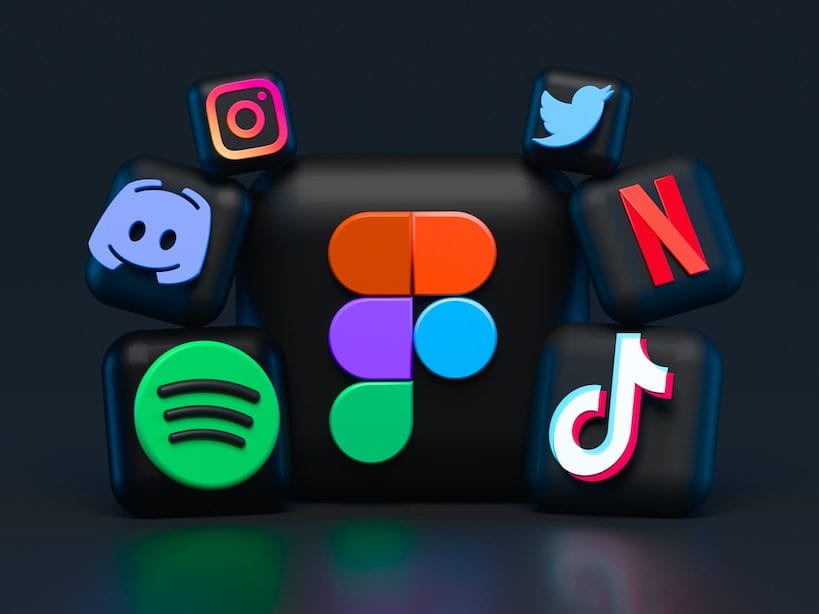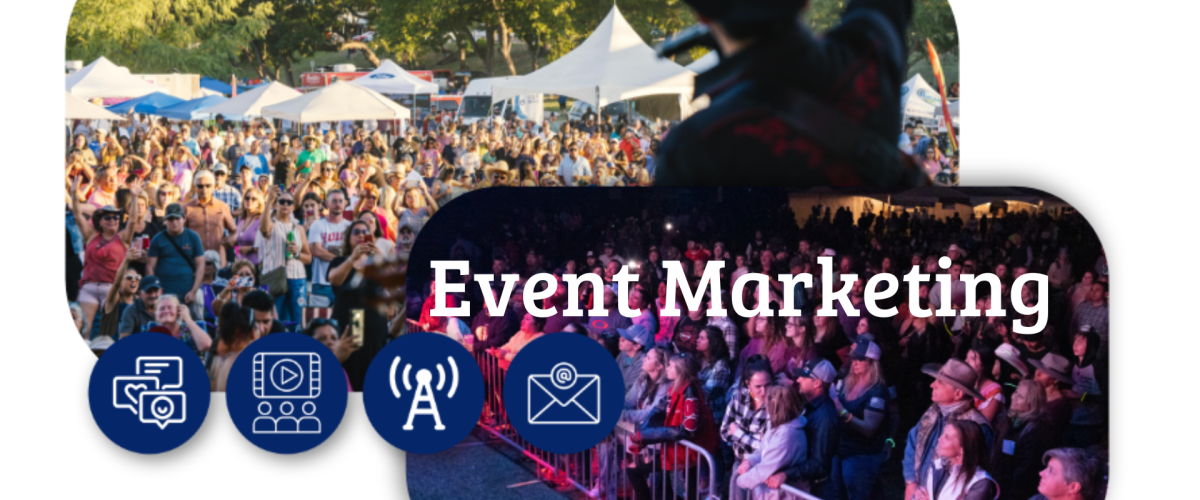Having the right marketing plan is the third step to selling out entertainment events. Remember for successful events our goals is:
Sell Out the Venue with the Highest Ticket Prices That Will Achieve That End.
There are three steps to doing that. They involve:
-
- Setting optimal ticket prices based on real research of the artist’s box office history and what similar successful events in your market area have charged for tickets. (Discussed in Part 1)
- Optimizing your website and box office and using multiple ticketing strategies, including variable pricing and different ticketing tiers with options to enhance the event’s fan experience, such as VIP tickets with bundled benefits. (Discussed in Part 2)
- Having a marketing plan based on research of the target market and how to reach them with a value proposition that will cause them to act and gives them a reason to buy.
If you have done steps 1 and 2 you are on your way to having successful entertainment events. Now your task is to create awareness and get people to visit your event website and box office.
Marketing Entertainment Events Begins with a Plan
Your event marketing plan should address the whole ticket sales life cycle. Delivering the right message at the right time is critical to selling out entertainment events. Don’t shoot all your marketing bullets at once. Remember your audience will have different motivations at different stages of the ticketing life cycle. The goal is to nurture them until they are ready to buy with consistent messaging throughout the ticket sales life cycle. Plan for the three major stages of the ticketing life cycle by allocating budget, tactics, and marketing assets. The three stages include:
-
-
- Creating anticipation and launching sales for your event
- Maintenance period of slower sales that typically occurs after the initial awareness period. Give people a reason to buy tickets sooner rather than later with price increases and using promotional and discount codes.
- Driving conversions just before your event. Urgency and Fear of Missing Out (FOMO) tactics can drive last-minute sales.
-
Why Should Someone Want to Attend Your Event?
Do you market the benefits of your event? Do you have a unique selling proposition (USP)? A USP is the one thing that makes your event better than the competition. It’s the benefit that makes your venue and events stand out when compared to other venues in your market. Keep up with your competitors and what they are doing.
Make sure your target audience understands the value of your event. Show every guest how you’ve created the perfect event with them in mind. Make sure you’re listening to your customers and then continually evolve your events and ticket offerings to maximize the appeal.
The Right Marketing Plan Should Address Key Issues and Timetables
Who, what, and how are questions you need to answer with a well-thought-out marketing plan for entertainment events. Who being your target audience for marketing; What being the marketing channels to best reach them; How being how best to utilize specific marketing channels.

For entertainment events that draw from a smaller geographic area, some to consider include:
-
-
- Previous customers or fans of your venue
- Fans of the performer
- Fans of the music genre being performed at the show
- People who attend or are interested in live entertainment events
- Location
- Income
-
The selection of the target audience for specific entertainment events involves both the venue and the headlining artist. For those venues with ongoing events, targeting previous venue customers and social media fans as well as social media fans of the headlining artists and opening acts may be enough. For smaller venues selling tickets to the opening act’s followers can amount to significant sales.
It’s not the purpose of this post to get into the details of how to select a target audience. Here’s an overview and examples from Hubspot.
What, When & How: Your plan should address the marketing channels that you will use to reach your target audience and how and when it’s best to use them. Needless to say, there are numerous online channels and offline media channels that can be used to promote your entertainment event. With limited resources, you want to select the best-performing channels for reaching your target audiences. Don’t make the mistake of spreading your marketing efforts too thin.
Those that have an ongoing event calendar can determine which channels drove the most awareness and ticket sales using analytics apps. First-time event organizers will need to begin with the online channels where they have a presence and following as well as where fans of the event’s entertainment might be found online. Use your existing sites to promote your entertainment events. That includes both online sites as well as using tactics within the venue itself.
Consider These Promotion Channels to Market Your Entertainment Events

Forums/Neighborhood Apps: There’s a community or forum dedicated to many topics and/or geographic areas. Try doing a Google search with your (type of event) + geographic area + forum/community/discussion and you will find places where discourse is underway about relevant subjects. Join in and do a soft pitch for your event when it makes sense. Blatant promotion on some sites will initiate a push back so exercise some discretion when posting. Don’t forget Nextdoor the app for neighborhoods. This app allows you to reach neighborhoods beyond your immediate area.

You need to approach existing customers and provide the right incentives to get them to act on your behalf. You can use group discounts, gamification with a reward system, competitions, and other incentives to get their help. This is much easier if you have already hosted successful events. Another way of using word-of-mouth is soliciting testimonials from your customers and attendees and posting them on your website and box office pages.
Performers: It’s very important that the entertainers performing at your events participate in the event promotion process. Their needs are perfectly aligned with yours. Many performers use a guaranteed performance fee or take most of the ticket sales, whichever is higher. They want the event to sell more tickets or have a bigger audience. They can help sell tickets in a number of ways.
-
-
- Reach out to their fans on social media and invite them to your event.
- Co-hosting event pages
- Provide promotional materials, e.g., copy, photos, and videos that you can use to promote the event.
- Provide you the demographic and psychographic data about their fan base so you can better target people who might be interested in the event.
- Provide a short video of them inviting people to the event to use on your box office page. The same video can be used on social media as well as the audio can be used for radio spots as part of your marketing strategies.
-
Sponsors: If your event has sponsors, get them involved in promoting your event to their audience/customer base. You can even make them look good to their customers by providing a promotional code they can send their customers, who, in turn, can purchase discounted tickets. It’s a win-win promotional tactic.
Press Releases: Press releases are a very important part of your concert promotion strategy for gaining earned media. They are the tool that is used to reach out to other media outlets that can help promote your concert beyond your own capabilities, and if done correctly can make a significant impact on the success of your concert turnout.

Overflowing inboxes and spam filters mean you need to utilize best practices with your email campaigns. Give people a reason to open your emails, as well as using short concise messaging and a clear call to action within them.
Email drip campaigns can be effective in providing the right message at the right time to nurture those considering buying tickets to finally make the purchase. Nurturing leads through a series of automated and well-timed messages is a great strategy to increase ticket sales because people who have engaged with your brand over a period of time are more likely to make purchases. Using email drip campaigns as part of your event promotion efforts is a great way to sell out faster and more efficiently.
SMS, i.e., text marketing, is being used more frequently these days. If you decide to use SMS messaging as a promotion vehicle, do it sparingly. It’s a very intrusive tactic and might have a negative impact on potential ticket buyers. I don’t recommend it.

When it comes to social media, use these channels to post not only coupon codes or limited-time offers but also post behind-the-scenes content and photos from past events to generate excitement. And don’t forget to create a Facebook event! Even if you have an event website, a Facebook event is a great way to spread the word.
The point is that to win at social media, you must put in the effort to understand each network’s quirks and implement a well-thought-out strategy to succeed. Examples include:
-
-
- Design personalized event imagery that they can post to social media.
- Create PPC ads on social media to generate new eyes on your social posts about your event.
- Re-share attendees’ photos on Instagram
- Create and run contests.
- Incentivize social sharing through promos.
- Share testimonials from last year’s event.
- Leverage your performer’s audience.
-
Tag the Performer in your own social media posts to encourage them to reshare. In addition, give them referral codes to use when they promote your event so you can track the ticket sales they’re generating for you.

Retargeting: Don’t give up on someone who checked out your event page or box office and left without actually buying a ticket. Retargeting is a tactic to give them another chance to change their mind. We’ve all experienced retargeting as we browse the Internet, seeing ads for products or services we viewed on a different webpage. By presenting a follow-up message or offer to someone who’s previously shown an interest, can pay big in terms of return on investment (ROI). We are talking as much as a 10 times ROI. You can target people with high pageview time or number without purchasing. You can also target your previous customers as well. Another tactic is to use retargeting ads each time prices are about to go up.
Offline Considerations for Event Promotion
There are numerous offline channels you can use for event marketing and promotion. You can find a full discussion of these channels and others on the TSE Event Promotion page. You can read our two-part article about using offline channels here.
One thing I would like to stress is the use of venue-specific tactics to promote entertainment events. Unless you are holding a one-time event, there are ways to engage with customers at your venue to help with ticket sales. Examples include:
-
-
- Using posters, flyers, and table cards to promote upcoming events with links to the box office for more information, buy tickets, or join a waiting list to be notified when tickets become available at discounted presale prices.
- Make announcements about upcoming events and how to join the waiting list or purchase tickets, reinforcing the use of the table cards and flyers spread throughout the venue.
-
The customers seated or standing in your venue for an event are the most likely to purchase tickets for future events. Make every effort to engage them and get them interested in future events.
The Old Adage: Fail to Plan, Plan to Fail Is True for Entertainment Events
As you can see there is a lot of things to consider when developing a marketing strategy for your events. It’s a lot to digest for first-time event organizers. For many a simple route is to engage with an agency that can create and carry out the marketing strategy necessary to sell out events.
Smaller venues might want to invest in having an agency create the initial event promotion strategy and the channels to use. They can then continue to use the plan for their future events, modifying it when necessary for a particular occasion.
Developing a sound marketing plan is an effort that should be amortized over the full life of the venue’s events. Remember marketing is not an expense! It’s an investment!
Remember Our Goal… Sell Out the Venue with the Highest Ticket Prices That Will Achieve That End.
The development of a sound marketing plan is one of the three steps in selling out entertainment events. Because TSE is positioned to provide all three steps, venues might consider having TSE help them with their promotion needs.
Related Posts:




